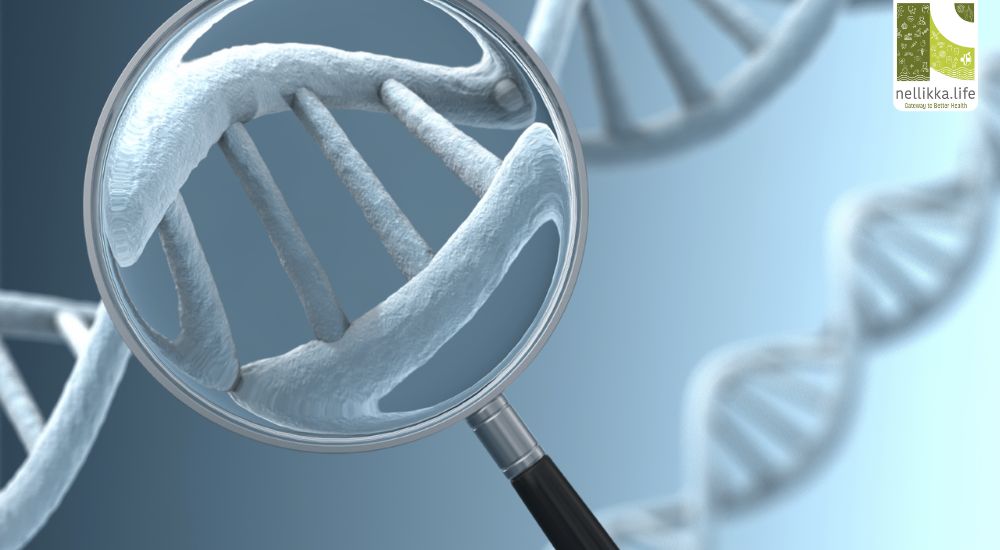Genetic Testing for Hereditary Cancer: How It Works (and What to Expect)

Most cancers arise from genetic changes that accumulate during a person’s lifetime. A smaller—but crucial—portion is due to inherited (germline) variants passed down in families. Genetic testing looks for those inherited variants to clarify cancer risk for you and your relatives, guide screening, and sometimes shape treatment. About 5–10% of all cancers are thought to be caused by inherited pathogenic variants, so knowing when and how to test matters. [1]
1) What exactly is hereditary-cancer genetic testing?
Hereditary (germline) testing analyzes your DNA—usually from blood or saliva—to find inherited variants that raise cancer risk (e.g., BRCA1/BRCA2, MLH1/MSH2/MSH6/PMS2/EPCAM for Lynch syndrome, TP53, PTEN, APC, PALB2, CHEK2, ATM, CDH1, STK11, and others). Modern labs typically use multigene next-generation sequencing (NGS) panels, sometimes with copy-number analysis to detect deletions/duplications. Public-health agencies emphasize that panel testing may be recommended instead of single-gene testing based on your history. [2]
Germline vs. tumor testing: Tumor (somatic) sequencing looks for changes in the cancer itself to guide therapy; it can incidentally flag inherited variants, but it does not replace dedicated germline testing for inherited risk. [3]
2) How the process works—step by ste
- Pre-test genetic counseling & risk assessment
A genetics professional reviews your personal and family history, draws a 3-generation pedigree, discusses benefits/limits of testing, possible results, privacy, and implications for relatives. Counseling before and after testing is a best practice. - Choosing the right test
Based on the history, your clinician/counselor may order a targeted test (e.g., confirm a known family variant) or a multigene panel to evaluate multiple syndromes at once. - Sample collection
Blood or saliva is collected and sent to an accredited laboratory. - Laboratory analysis & reporting
Variants are classified under standardized criteria (pathogenic/likely pathogenic, VUS, likely benign/benign). Variants of Uncertain Significance (VUS) should not guide medical decisions; management relies on personal/family history until reclassification. [4] - Post-test counseling
Your clinician/counselor explains the result and tailors a plan for screening, risk-reduction, or treatment, and coordinates cascade testing for relatives if indicated. [5]
3) Who should consider testing?
Authoritative guidelines recommend targeted risk assessment and testing for people with:
- Personal or family history of early-onset cancers, multiple primaries, or clustering of certain cancers (e.g., breast/ovarian; colorectal/endometrial).
- A known pathogenic variant in the family.
- Ancestry or features associated with higher likelihood of BRCA1/2 or Lynch variants.
In colorectal and endometrial cancer, universal tumor screening with MSI testing and/or IHC for mismatch-repair (MMR) proteins is widely adopted to flag possible Lynch syndrome—followed by confirmatory germline testing when abnormal. [6]
4) How results change care
If a pathogenic/likely pathogenic variant is found, you may be offered:
- Earlier or more frequent screening (e.g., breast MRI in BRCA carriers; colonoscopy at shorter intervals in Lynch syndrome).
- Risk-reducing options (e.g., risk-reducing mastectomy or salpingo-oophorectomy in selected BRCA carriers, after counseling).
- Therapy selection in some cancers (e.g., PARP inhibitors for BRCA-mutated tumors; immunotherapy for MSI-high/MMR-deficient tumors).
- Cascade testing for first-degree relatives, who can then follow tailored prevention plans.
(See NCI’s BRCA and Lynch resources for risk-management overviews and why sharing results with family is important.) [7]
If your test is negative but suspicion remains high, clinicians may still follow enhanced screening based on history; periodic re-evaluation or updated panel testing may be considered as science evolves. [8]
If your result is a VUS, do not change care solely because of it; labs may reclassify VUS as more evidence accrues. [9]
5) Benefits, limits, and ethics
Benefits
- Clarifies personal risk and can detect cancers earlier.
- Enables family risk stratification (testing relatives).
- May inform treatment choices for people who already have cancer.[10]
Limits
- A negative test does not erase risk when the family history is strong.
- VUS findings can be confusing and should not drive care. [11]
- Direct-to-consumer (DTC) tests are not a substitute for clinical testing; many don’t evaluate the full set of medically relevant variants and lack counseling.
Privacy and access
Who can see your results and how they’re used depends on local regulations and your consent; discuss this with your clinician/counselor before testing.
6) A quick guide to common hereditary cancer syndromes
- Hereditary Breast–Ovarian/Prostate/Pancreatic (BRCA1/BRCA2, PALB2, etc.)
Elevated risk for breast/ovarian and other cancers; results can change screening and prevention, and sometimes treatment. - Lynch Syndrome (MLH1, MSH2, MSH6, PMS2, EPCAM)
Increases risk of colorectal, endometrial, and other cancers; MSI/IHC tumor screening helps identify families for germline testing and surveillance.
(Other important syndromes include Li-Fraumeni [TP53], Cowden [PTEN], familial adenomatous polyposis [APC], Peutz–Jeghers [STK11], diffuse gastric cancer [CDH1], and more; panel testing evaluates many of these simultaneously.)
7) Preparing for testing: practical tips
- Collect your family history (who had which cancer, and at what age).
- Meet a genetic counselor to discuss pros/cons, test scope, cost/coverage, and family implications.
- Plan ahead for results—what you would do if positive, negative, or VUS.
- Share results with at-risk relatives so they can pursue testing/screening.
Evidence-based resources (for deeper reading)
- NCI – Genetic Testing for Inherited Cancer Risk (Fact Sheet). [12]
- CDC – Hereditary Breast & Ovarian Cancer: Genetic Testing and Genetic Counseling. [13]
- GeneReviews/NCBI Bookshelf – Lynch Syndrome (diagnostics and testing approach). [14]
Medical disclaimer: This article is educational and not a substitute for personal medical advice. Decisions about genetic testing and cancer prevention should be made with a qualified clinician or genetic counsellor who knows your medical and family history.





